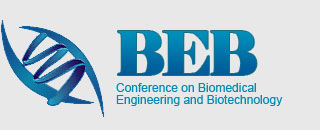Invited Speaker--Dr. Saulius Klimašauskas

Director and Distinguished Professor, Institute of Biotechnology, Life Sciences Center, Vilnius University, Lithuania
Saulius Klimašauskas, Ph.D., Dr. Habil., is Director and Distinguished Professor at the Institute of Biotechnology, Life Sciences Center, Vilnius University, Lithuania. After graduating the Department Chemistry at Vilnius University and receiving his PhD in Bioorganic Chemistry (1987) he spent 5 years as a visiting scientist with Sir Richard J. Roberts (NL) at Cold Spring Harbor Laboratory, USA. In 1995, he started his own lab at the Institute of Biotechnology where he pursued mechanistic studies and molecular engineering of DNA and RNA modification enzymes followed by development of molecular tools for targeted labeling of biopolymers and epigenome analysis. Prof. Klimašauskas was a repeat International Research Scholar of the Howard Hughes Medical Institute (1995–2005), a JSPS invited professor at Osaka University (2002). Lately, he became a Fellow of the Royal Society of Chemistry (2015), a recipient of an ERC advanced grant (2017) and was elected an EMBO member (2017).
Speech Title: Repurposing enzymatic methyltransferase reactions for targeted functionalization and analysis of DNA and RNA
Abstract: Methyltransferases (MTases) catalyze highly specific methyl group transfers from the ubiquitous cofactor S-adenosyl-L-methionine (SAM) to a multitude of biological targets in the cell. Methylation of cytosine and adenine residues in DNA and RNA is part of epigenetic regulation of gene function in vertebrates and can often be associated with the occurrence and progression of human disease. Despite the importance of transmethylation reactions in biology, the naturally transferred methyl group has limited utility for practical applications. Here we sought to redesign the methyltransferase reactions for targeted transfer of larger chemical moieties by employing synthetic SAM analogues in which the sulfonium-bound methyl group is replaced by an extended side chain that typically carries a transferable propargyllic moiety, a linear linker and a terminal reporter/functional group. Using a series of such SAM analogues and natural or engineered variants of appropriate methyltransferases as targeting vehicles we achieved precise covalent functionalization and labeling of natural DNAs and RNAs. Practical utility of this novel labeling platform, named mTAG, was further demonstrated by developing molecular tools for single molecule sub-megabase scale genotyping, economical DNA epigenome profiling, and selective miRNA/siRNA analysis in vitro and ex vivo. These findings provide new insights into the catalytic plasticity of SAM-dependent enzymes and offer inroads into developing novel enabling tools for biomedical research and next generation diagnostics.
Keywords: Enzyme/reaction engineering, cofactor analogue, targeted biopolymer labeling, epigenome profiling, miRNA/siRNA analysis

